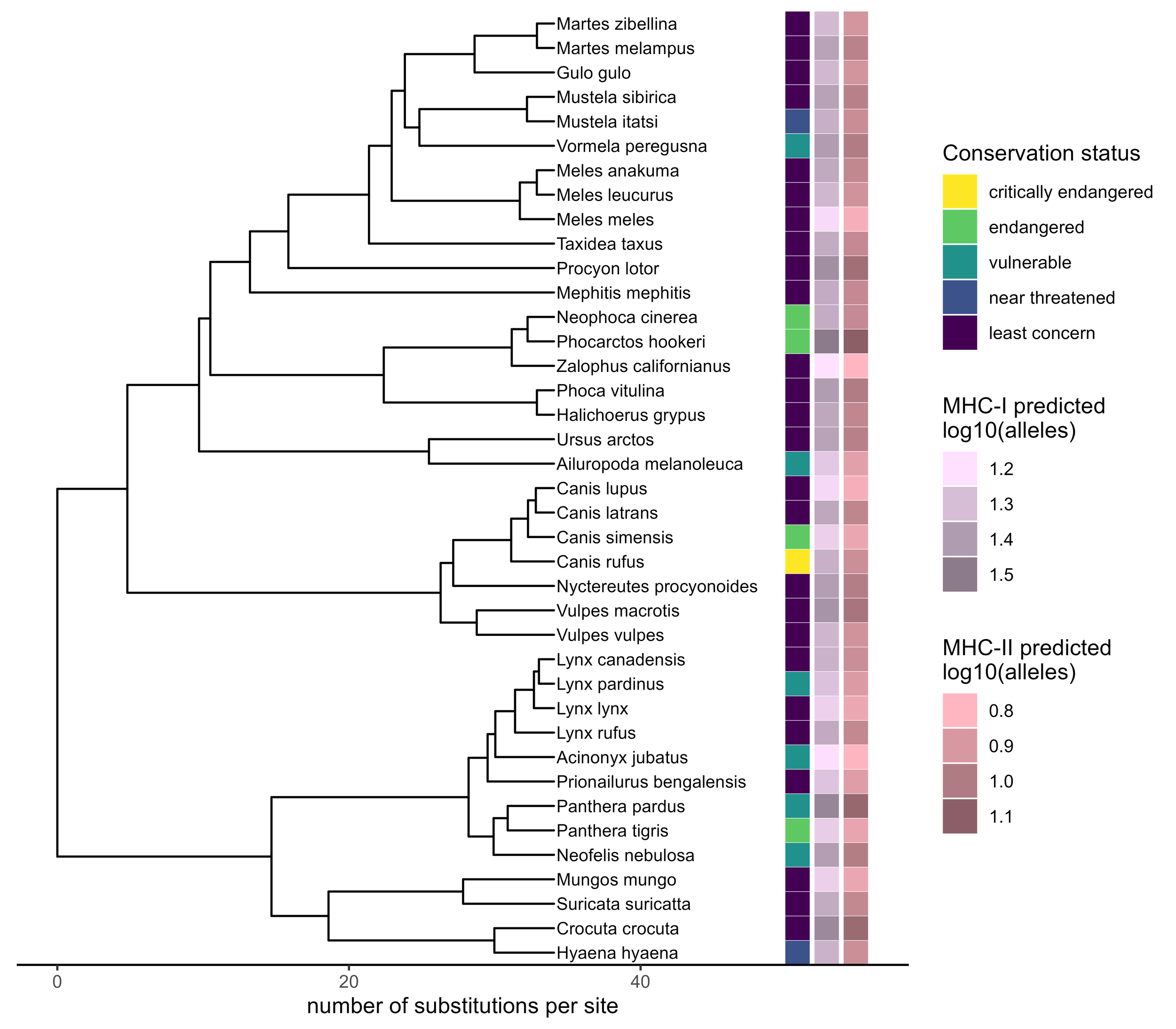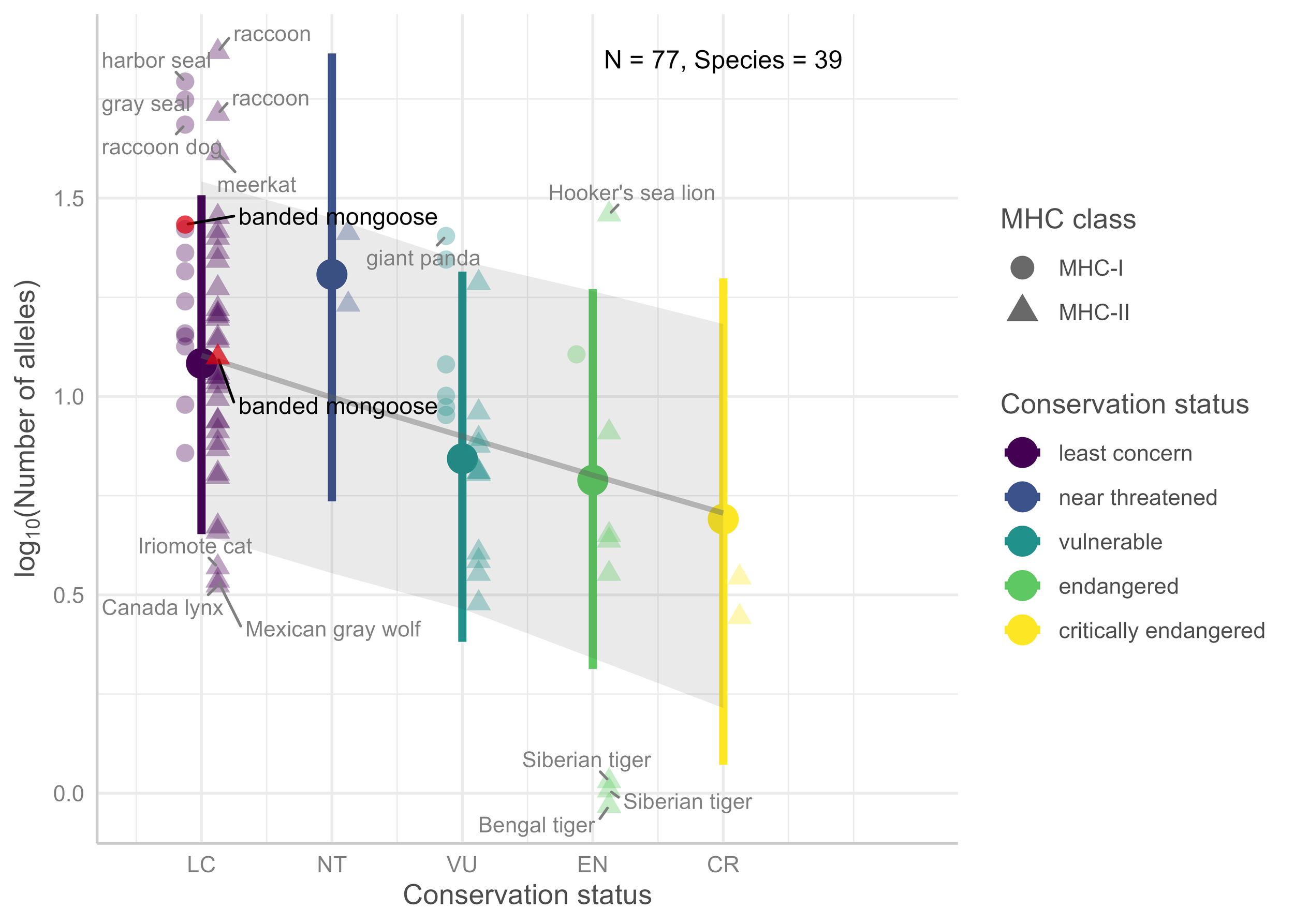Comparative insights
Conservation immunogenetics
How do population declines affect the genetic diversity animals need to fight disease? We addressed this by studying the major histocompatibility complex (MHC), a set of immune genes that are highly variable and central to pathogen defense. Carnivores are of particular interest because many species face shrinking populations and disease threats, yet often carry only a few MHC genes. Using a phylogenetic mixed model across dozens of carnivore species, we found that threatened species tend to have lower MHC diversity, suggesting that population loss erodes immune variation needed for resilience and highlighting MHC monitoring as a useful conservation tool.
Selected Publications
Schubert N, Nichols HJ, Mwanguhya F, Businge R, Kyambulima S, Mwesige K, Cant MA, Winternitz JC. 2025. Inbreeding does not reduce major histocompatibility complex diversity in the banded mongoose. BMC Ecology and Evolution 25, 104. https://doi.org/10.1186/s12862-025-02456-x
Do Parasites and Mating Systems Jointly Shape Immune Gene Diversity in mammals?
To understand how immune genes evolve across different animals, we look at patterns on a broad, evolutionary scale. By combining data on life history traits, parasites, and genetics, we compare species to see what forces drive immune gene diversity. In one of the first studies of its kind, we found that while parasites do influence immune genes, sexual selection—like competition for mates or mate choice—may have an even stronger and more consistent impact across mammals.
Selected Publications
Winternitz JC, Minchey SG, Garamszegi LZ, Huang S, Stephens PR, Altizer S. 2013. Sexual selection explains more functional variation in mammalian immune genes than parasitism. Proceedings of the Royal Society B Biological Sciences 280(1769): 20131605. https://doi.org/10.1098/rspb.2013.1605
Winternitz J, Abbate J, Huchard E, Havlíček J, Garamszegi LZ. 2017. Patterns of MHC-dependent mate selection in humans and non-human primates: a meta-analysis. Molecular Ecology 26: 668-688, https://doi.org/10.1111/mec.13920
Demographic history and gene duplication shape immune gene diversity in rodents
MHC genes are critical for pathogen defense, but it remains unclear how demographic instability influences their diversity. While balancing selection is often assumed to maintain MHC polymorphism, frequent population bottlenecks could erode this variation. To test this, I conducted a phylogenetically controlled comparative analysis across 16 rodent species with different demographic histories and levels of MHC gene duplication. I found that species with consistent bottlenecks had lower MHC allelic richness, while those with more duplicated MHC loci exhibited higher allelic diversity and stronger purifying selection. This study highlights the importance of demographic and genomic context in shaping immune gene evolution.
Selected Publications
Winternitz JC, Wares JP. 2013. Duplication and population dynamics shape historic patterns of selection and genetic variation at the MHC in rodents. Ecology and Evolution 3(6):1552-1568. https://doi.org/10.1002/ece3.567



